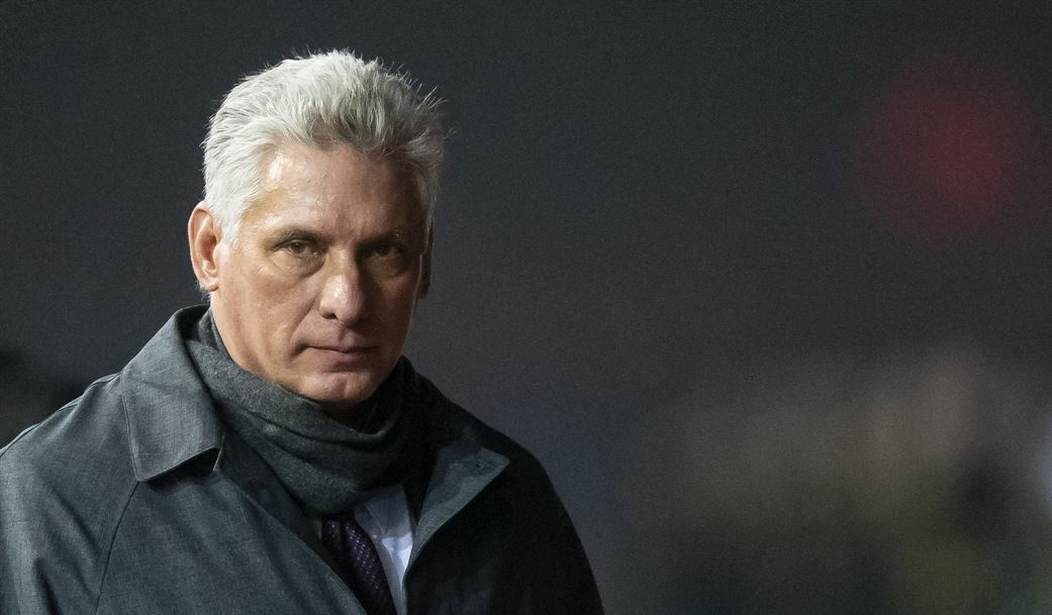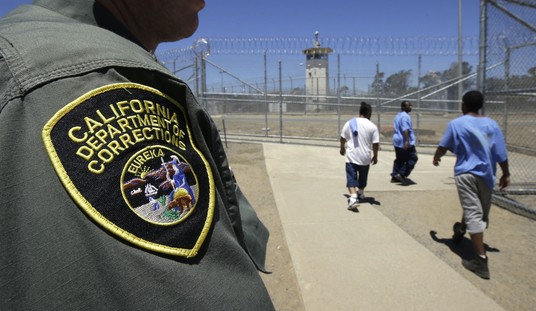Yesterday, one of the biggest news stories making the rounds involved the sudden emergence of widespread protests in Cuba. They were being described as pro-democracy demonstrations calling for the end of the dictatorship that currently controls the country under President Miguel Díaz-Canel. People were taking to the streets in more than two dozen cities and numerous smaller towns. But as of this morning, things suddenly appear a lot more subdued in Cuba. There are still some sporadic reports of protesters showing up, but the activity appears to be significantly muted compared to Sunday and Monday. So is the “uprising” really over that quickly? It might be, or at least close to it because the Díaz-Canel regime has already begun cracking down on the protesters, while still attempting to blame the unrest on the United States. (Associated Press)
Cuban police are out in force on the country’s streets as the president is accusing Cuban Americans of using social media to spur a rare outpouring of weekend protests over high prices and food shortages.
The demonstrations in several cities and towns were some of the biggest displays of antigovernment sentiment seen in years in tightly controlled Cuba, which is facing a surge of coronavirus cases as it struggles with its worst economic crisis in decades as a consequence of U.S. sanctions imposed by President Donald Trump’s administration.
Many young people took part in Sunday’s demonstrations in Havana. Protests were also held elsewhere on the island, including in the small town of San Antonio de los Baños, where people objected to power outages and were visited by President Miguel Díaz-Canel.
Signs of the government crackdown are being reported across the country. In Santiago, several dozen people were arrested including one well-known dissident leader. In Havana, lines of police in riot gear rushed groups of protesters and dispersed them using tear gas. Internet access was cut off across much of the country, apparently as an attempt to stop protest organizers from communicating.
The more people we see being interviewed by reporters, the more it sounds as if this really wasn’t as much of a “pro-democracy uprising” as some believed. Certainly, there were some of the dissidents who oppose the current regime mixed in with the crowds, but most of the people said they were angry about long lines for food, a lack of vaccines to fight the pandemic, and rolling power outages that have been plaguing parts of the country.
Miguel Díaz-Canel was seen visiting people’s homes in a couple of towns to listen to their complaints. He also gave several televised statements, both condemning the protesters (and the United States, of course) and promising that better services were on the way. It’s possible that those actions, combined with the public’s fear of the communist party’s brute squads, were enough to send a lot of the marchers back to their homes.
The arrests of high-profile dissidents were confirmed by Reuters last night and they included some figures that have made headlines there in the past.
Jose Daniel, the leader of Cuba’s largest opposition group, the Patriotic Union of Cuba (UNPACU), was arrested as he left home to join the protest in Santiago de Cuba in the east of the country on Sunday. His whereabouts is unknown, UNPACU activist Zaqueo Baez told Reuters.
Luis Manuel Otero Alcantara and Amaury Pacheco, two members of a dissident artists’ collective that has made headlines spearheading a broader protest movement in Cuba in recent years, were arrested on their way to protest in Havana, Pacheco’s partner Iris Ruiz told Reuters. Otero Alcantara was in jail while Pacheco’s whereabouts were unknown.
Nobody is sure where Jose Daniel is at the moment, but Pacheco and Otero Alcantara are in jail in Havana. It appears that the government’s strategy at this point is to cut the head off the snake by locking up some of the usual suspects that protesters might be looking to for instructions. And while it’s sad to say it, given the recent history of protests and crackdowns in Cuba, it might work. If Miguel Díaz-Canel can manage to put some food on the store shelves and get the power turned back on, a lot of these people will likely go back home. Until the Cubans finish developing their own vaccine they probably won’t be able to do much about the COVID surge, though.







Join the conversation as a VIP Member